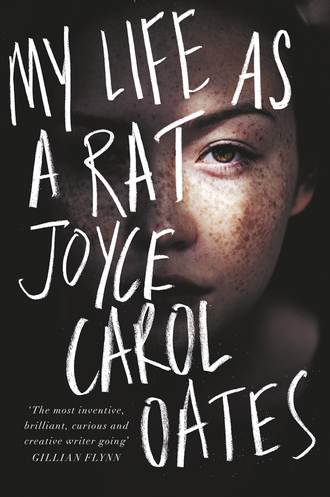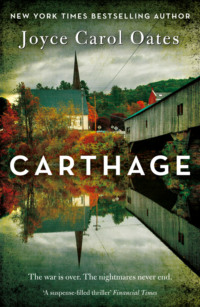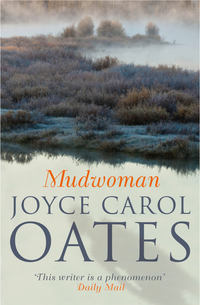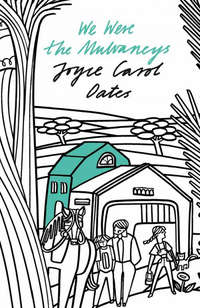
Полная версия
My Life as a Rat
If she’d been victimized by the boys, and not a willing companion, wouldn’t she have called for help as soon as they’d released her, and she was able to run out into the street?
(Though it wasn’t clear that the boys had kept Liza in the restroom against her will. She hadn’t been a captive, they said; she’d wanted to stay, and only left because it was suppertime, and she suddenly remembered that her parents would be angry with her if she was late.)
Eventually, it was established that there were at least seven boys involved in the incident. These included Jerome Kerrigan Jr. and his brother Lionel but not (it seemed) Les. (Certainly not Rick.) No doubt there were more boys but the seven who were named refused to provide the names of other boys—they were not rats.
Poor Liza! Questioning left her confused about the boys’ names but she could (more or less) identify them by other means, descriptive means and by studying pictures.
Yes she’d gone into the park and into the restroom with them willingly but when she’d wanted to leave they had not let her leave. Yes she’d been held captive by them, in the restroom. No she had not wanted to do the “nasty” things they did to her.
Yes she had told them she wanted to go home. Yes she had started to cry but they just laughed at her. No no no she had not told them that her brothers had done these nasty things to her, and other boys and men beside. She had not.
It was not clear if Liza had intended to tell her parents that “something bad” had happened to her. After they’d released her she’d slipped into her house by a rear door and was discovered by her mother in a flushed and disheveled state, clothes soiled and torn and misbuttoned, and her face smeared with blood. At once, confronted by her frightened mother, Liza burst into tears and began stammering and sobbing.
It was the “worst day” of their lives, Mrs. Deaver said. They would “never, not ever” recover from what had been done to their daughter whose fault was she was “too friendly” to people who were not her friends.
The Deavers lived in a ramshackle house on Carvendale Road, at the edge of the school district. On one side of the road was the township of South Niagara, on the other side an unincorporated region of scrubby farmland, overgrown pastures and derelict dwellings.
The Deavers were a large family but not as the Kerrigans were a large family. For the Deavers were a welfare family whose father could not provide for his wife and many children—nine? Ten? And of these, what a pity, what a shame, unless it was a crime, as people said, several were not right in the head—what the kids called retards.
Mr. Deaver, when he was employed, worked at the railroad yard. Mrs. Deaver worked part-time at a local mall. Several of their children were out of school and only intermittently employed and the youngest had not yet begun school.
At Family Court, Liza initially sat mute and frightened as others spoke on her behalf. Her deep-shadowed eyes were swimmingly magnified behind the thick lenses of her glasses. After a while she began to answer questions in a hushed, hoarse voice. Eventually she began to speak louder. And then she began to cry, to sob, to stammer, to stutter and to choke. Her splotched-turtle face was flushed and puffy, saliva glistened at her lips. Family Court officials who tried to make transcripts of her not-very-coherent and contradictory accounts would insist afterward that they felt sorry for the “poor, mentally disabled girl”—and for the Deavers, who accompanied Liza and never let her out of their sight—(Mrs. Deaver went with Liza several times to the restroom during the course of the session)—were nonetheless unconvinced that Liza was telling the truth or even that with her impaired cognition she had a clear conception what truth might be.
It was generally conceded—Boys will be boys. And—These boys’ lives might be ruined … How much worse the situation might have turned out for the boys, if the girl had been seriously hurt!
There were extensive interviews with the accused boys by Family Court officers, with the boys’ fathers and their attorney present. (The fathers of the accused boys hired a single lawyer to represent their sons, a local lawyer with connections to the Kerrigan family.) In this way a public hearing in juvenile court was avoided. There were no arrests. No formal charges were made against the boys who were suspended from school for one week.
Liza Deaver was placed on suspension for the remainder of the school year for it was believed that her presence would be “distracting” and “hazardous,” in the words of the school principal; Liza herself was known to have a raging temper, and to strike out furiously, in frustration, at younger and smaller children when she believed they didn’t respect her. (Liza was usually intimidated by individuals older than herself.) As it happened Liza Deaver never returned to school but was allowed to drop out for “medical reasons.”
All this my sister Katie and I would learn, much later. At the time, we knew little.
No one in the family talked about Liza Deaver, so far as we knew.
No one talked about the trouble. For weeks Jerr and Lionel were subdued around our mother and wary of our father, like kicked dogs. But cunning kicked dogs. They had 9:00 P.M. curfews. Jerr wasn’t allowed to drive for six weeks. Both boys had extra chores around the house. On the phone my mother said, incensed, “It was all that girl’s fault! She did it deliberately! Those Deavers better get her fixed! Before it’s too late.”
When my mother hung up I asked what “fixed” meant. I wondered if whatever the boys had done to her, Liza might need fixing like a broken clock.
Disdainfully my mother said, “Like a cat, spayed. So it can’t have kittens people have to drown.”
To Die For
GROWING UP, WE KERRIGAN KIDS KNEW THAT OUR DADDY would die for us. No one had to tell us, we knew. Of course, the concept “to die for” was not in our vocabularies. Still, we knew.
In our father’s big Irish Catholic family in Niagara Falls he’d been raised with the conviction that families stuck together. Irish immigrants had had a hell of a hard time coming to America, hadn’t even been considered “white” in some quarters, like Italians, Greeks, and Jews, until even the 1950s. And so, the Irish stuck together, in theory at least.
Not in theory, but in reality, and crucially, a family had to protect its own. You might quarrel with relatives, a brother or a sister, you might quarrel with your parents but essentially you stuck together, you never deserted or betrayed one another. You never went outside the family—that was unforgivable.
Inside the family you never lied when it really mattered, and you never cheated.
Siding with your brother against your cousin, but with brother and cousin against the stranger.
You would die for your family and you would (maybe) die for your (close) friends the way soldiers would die for their (close) buddies.
Something like this, Jerome Kerrigan had truly seemed to feel for his immediate family, if not all of the Kerrigans. And for the guys in his platoon in Vietnam, he dared not recall without his eyes welling with tears and his mouth working to keep still.
If Daddy was suspicious of strangers he was almost naively trusting of relatives and friends. Often he did household repairs for no payment, wouldn’t hear of being paid except in drinks, hospitality, reciprocal favors. That was friendship—loyalty, paying back what you owed. Being generous.
He lent money to people who, he had reason to know, probably wouldn’t be able to repay him; he lent money without interest, knowing that this was a disadvantage, for those to whom he’d lent money would repay the lenders who’d demanded interest, and not him. Yet, Daddy could not bring himself to lend money with interest—that was not how he saw himself.
And so, Daddy lent money to his heavy-drinking brothers. He provided bail bond for Kerrigans who found themselves on the wrong side of the law—business fraud, bad checks, failure to pay alimony, embezzlement. He did favors for guys in the plumbers’ union, for guys he’d gone to school with who’d had bad luck. He respected bad luck—it could happen to anyone.
The more kids you have, the more possibilities for bad luck. That was a grim fact.
The most extravagant thing Daddy did, that I remember from my childhood, was helping one of his younger sisters buy a house in Buffalo, so that she and her husband could live near her husband’s family, who would help her nurse her husband afflicted with some terrible wasting disease like multiple sclerosis. Our mother had not liked this arrangement, she’d sighed and fretted and all but wept over the phone, for a large amount of money was involved, but in Daddy’s presence she did not dare complain for, as Daddy would’ve pointed out to her, he was the one with a salary.
At the same time, you did not wish to cross Jerome Kerrigan.
You did not wish to find yourself on his shit list. For there were many on this list who were, in Daddy’s eyes, fucked.
Forgiving was rare. Forgetting, rarer.
And the closest you were to Daddy, the harder for Daddy to forgive.
He liked to quote an Italian adage—Revenge is a dish best served cold.
Another remark he favored from the boxing world was What goes around comes around. Which was more hopeful for it seemed to mean not just bad but good, too. The good you do will be returned to you. Eventually.
“Accident”
IN NOVEMBER 1991 WHEN HADRIAN JOHNSON WAS BEATEN UNCONSCIOUS and left to die on the shoulder of Delahunt Road, and the lawyer who’d defended Jerome Jr. and Lionel Kerrigan at the time of Liza Deaver pleaded their case to prosecutors, the defense of boys will be boys didn’t work so well for them, or for my cousin Walt Lemire and a neighborhood friend named Don Brinkhaus who was also involved in the beating.
At this time Jerome Jr. was nineteen and no longer living at home. He’d managed to graduate from South Niagara High with a vocational arts major and, through Daddy’s intervention, was an apprentice plumber with the contractor for whom Daddy also worked, the largest and best-known plumbing contractor in the city; he had not yet been accepted into the plumbers’ union but there was no doubt that he would be as soon as he completed his probationary period. (No African Americans belonged to the local plumbers’ union. This would be emphasized, unfairly some thought, in the media coverage of the case; unfairly because there were no African Americans in the local police officers’ union, the firefighters’ union, the electricians’ and the carpenters’ unions, among others. The only local union in which black men were welcomed was the sanitation workers’ union which was predominantly black and Latino.) Lionel was sixteen, a sophomore at the high school, big for his age, coarse-skinned, easily bored. Even in vocational arts Lionel’s grades were poor, he cut classes often, our mother didn’t dare report him to our father for fear of a terrible scene. But Lionel was in awe of his independent older brother who lived by himself now in a place near the railroad yard and owned a car, Daddy’s old 1984 Chevrolet he’d passed on to Jerr since it was all but worthless as a trade-in. Weekends the two hung out together drinking beer with Jerr’s friends, cruising in Jerr’s car. Jerr had hated school but now he was hating full-time employment even more, being overseen, assessed and judged. Worse, he hated being a plumber’s assistant, actually having to clear toilets of shit, every kind of crap, came close to puking every time he went out.
What their father called fucking real-life. Didn’t know how the hell long he could take this fucking real-life.
At the house Jerr had grown sick of Mom snooping into his life. Overhearing him on the phone. Giving him unwanted advice. Stripping his bed of soiled sheets, picking up his filth-stiffened socks and underwear from the floor to be laundered. Preparing food he was bored with, he’d grown out of eating years ago, had come to hate. Fast-food restaurants were good enough for him, greasy cheeseburgers, heavily salted french fries. Anything that came in a cellophane wrapper strung up in colorful displays at the 7-Eleven, he’d tear open with his teeth in a pretense of rapacity.
When he’d broken up with his girlfriend boasting how he’d left her stranded at a tavern, exactly what the bitch deserved for disrespecting him, there was Mom shocked and demanding to know why he’d do such a thing, she had met Abbie and Abbie seemed like a nice girl, and Jerr came back at her, “Fuck ‘Abbie is a nice girl.’ You don’t know shit about ‘Abbie,’ Mom. So mind your own fucking business. There’s no ‘nice girls’ just different kinds of pigs.”
Mom was so shocked by Jerr speaking to her in such a way, not just the disrespect, the insolence, but also the meaning of his words, the loathing for her, she could not reply but stumbled away to another room.
No nice girls just different kinds of pigs.
AGAIN AND AGAIN, WHY.
But it was like nice girls, pigs—there was no why.
You would say, the Kerrigan boys had not been brought up that way, and that would be true. And yet.
Going back to a time when our father had attended South Niagara High there’d been incidents involving white boys and darker-skinned boys, especially following Friday night sports events, but these were usually squabbles or altercations between sports teams, rival schools. Rivalry with Niagara Falls High, Tonawanda High, South Buffalo. Some of these teams were predominantly white, and others were predominantly black. South Niagara had integrated teams, our coaches liked to boast. Boys’ teams, girls’ teams. Football, basketball, softball. Swim team.
Cheerleaders? That was another story.
No incident had involved Hadrian Johnson, who was on both the varsity basketball and softball teams in his junior year.
The previous year, when Jerome Kerrigan Jr. had been a senior, he’d known Hadrian Johnson slightly, as he’d known a scattering of African American boys at the school, but there’d been no animosity between them—none at all. So Jerome Jr. insisted, and so it seemed to be true.
Lionel would deny “animosity” too. Any “race prejudice”—not him.
They would insist, they admired black athletes—Mike Tyson, Magic Johnson, Michael Jordan. Jerry Rice, Barry Sanders. And many others.
They’d been aware of Hadrian Johnson on the high school sports teams for who had not been aware of Hadrian Johnson? Not that Hadrian was a brilliant player, usually he was just very good, very reliable, the kind coaches can depend upon.
Yes it was true, the better black athletes at South Niagara were generally showy, spectacular. They modeled themselves after the great national black athletes whom Americans watched avidly on TV. These were the insolent blacks whom white boys feared, disliked, envied. If these black athletes were not demonstrably superior to the very best white players they were likely not to be chosen for varsity teams for there was much pressure from (white) fathers, that their sons be chosen for teams, and there was (as coaches tried to explain) limited space on the teams; but, granted this fact, in the face of such competition still Hadrian Johnson was chosen for two varsity teams, a favorite of coaches and of teammates.
A black kid, yes. But not, you know—one of them.
South Niagara wasn’t a large school: fewer than five hundred students distributed among three grades. In some way everyone knew everyone else.
But white students and darker-skinned students didn’t mix much. On sports teams and in the school band and chorus, service clubs, but not socially.
Nor was there “mixed” dating. Just about never.
It was ironic, Hadrian Johnson had been an outstanding player on the South Niagara Jaycee boys’ softball team, which was comprised of boys from several city schools. Photographs of Hadrian in his Jaycee uniform, to be published in newspapers and on TV, had been taken at Kerrigan Field.
Questioned by South Niagara prosecutors whether they’d had any special reason to stalk and harass Hadrian Johnson, the boys insisted no.
They had not “stalked” him—that was wrong. They’d meant just to scare him. And they had not known it was him—they hadn’t seen his face, not at first.
But had they forced Hadrian Johnson off the road, because he was black?
Vehemently they denied this. Repeatedly, they denied this.
Four white boys driving a vehicle, a solitary black boy on a bicycle, late Saturday night—but no, they were not racists.
It would be bitterly debated, whether the attack had been a hate crime, or an assault that had gotten out of control in which race wasn’t an issue. If a hate crime the assailants were likely to be sentenced to longer prison sentences, if they were found guilty; but there was the possibility, if they insisted upon a jury trial, that they might be acquitted by a sympathetic (i.e., white) jury. If he could devise a way in which such a defense would not backfire and make things worse, in the media for instance, their lawyer was considering the boys might claim self-defense.
The boys had been drinking for most of the evening. Two of them were underage which involved the others, for having supplied them with alcohol; the 7-Eleven storekeeper who’d sold them the six-packs was in trouble as well. They’d been driving around, at the mall, returned from the mall, drinking and tossing beer cans. Stopped at Friday’s, where there was a crowded bar scene, later at Cristo’s (which was taking a chance, our father sometimes dropped by Cristo’s on Friday night). Past Kerrigan Field. Past Patriot Park. Kirkland Avenue, Depot Street, Delahunt. Saw this guy in a hoodie riding a bicycle on Delahunt looking kind of suspicious to us like he didn’t belong in the neighborhood. Something in the bicycle basket looked like could be stolen goods. We did not see his face—we did not know who it was … If they’d shouted after him it was just a way of talking, scaring someone who (maybe) didn’t belong in the place he was in. If Jerr aimed the car at the bicyclist it was just to scare him not to run him down at the side of the road.
And the way he tried to escape crawling away, yelling to leave him alone. Like what a guilty person would do.
Like cops, they were. Neighborhood “vigilantes.” Keeping strangers from breaking into houses, stealing cars.
Their lawyers were suggesting this possibility. “Vigilantes”?—“fighting crime”? Like the possibility of self-defense.
Problem was, the boys weren’t in their own neighborhood. Hadrian Johnson happened to be in his neighborhood.
Yes but they hadn’t known. Like they hadn’t gotten a look at their victim’s face until—later.
Delahunt was a darkened road at this time of night. Strip mall, fast-food taco place, gas station. At Seventh Street there was a small trailer court with a string of unlit lights, from the previous Christmas. Beyond that a potholed street of small wood frame bungalows lacking a sidewalk, called Howard.
Following the bicyclist along Delahunt. For the hell of it.
Well—who rides a bicycle at night? Looked like a tall dude, not a kid. Not a young kid. And what was in the basket?
Reflectors on the back of the bike and the bike looked (they could see, squinting in headlights) like it might be pretty expensive. Stolen merchandise?
The bicyclist was acting guilty, they thought. Bumping along on the shoulder of the road. Knew they were there, and coming close to him. Maybe he thought they were cops. So he tried to pedal faster, fast as he could, intending to turn into a dirt lane opening ahead in a field, looking to escape. For whoever was in the car was coming close to him, honking his horn like machine-gun fire. Guys yelling out the windows.
It would turn out that Hadrian Johnson had spent the evening at his grandmother’s house on Amsterdam Street a mile away. Sometimes when Hadrian spent time with his grandmother who suffered from diabetes he stayed the night but this night, he did not. Bicycling home to Howard Street along a stretch of Delahunt where if there was traffic it was likely to be fast but there was relatively little traffic at that hour of the night, he’d been ten minutes from his mother’s house when a vehicle had come up swiftly behind him swamping him with its bright lights, deafening horn, derisive shouts, curses.
Thud of the front right fender striking the bicycle, a high-pitched scream, the fallen boy amid the twisted bicycle trying to free himself and crawl away …
What happened next was confused.
Hard to remember. Like something smashed and broken, you are trying to reassemble.
Still it was an accident. The boys would claim. Had to be, for what happened hadn’t been premeditated.
Striking the bicyclist, could see by this time that it was a kid, (maybe) a black kid, but (still, yet) no one they recognized, so Jerr braked the car to a stop, had to check the bicyclist to see if he was all right …
True Jerr did stop the car. True they did exit the car.
True they did approach the (injured?) boy who was trying to crawl away from them at the side of the road …
(Was it true, all four boys had exited the Chevrolet? Or had Walt remained inside, as Walt would never cease to claim?)
Here is a fact: nothing of what happened was what Jerome, Lionel, Walt, Don had meant to happen. Which wasn’t to say that they remembered clearly what had happened.
Just that they’d been drinking. The older guys had gotten the beer for the younger guys. Saturday night. Deserving more from fucking Saturday night. Not ready to go fucking home just yet.
But only seconds, they’d stopped on Delahunt. Not even a minute—they were sure. Vaguely aware of traffic on the road, a vehicle passing. Someone slowing to call out the window What’s going on? and Jerr yelling back We called 911, it’s OK.
And then panicked and back in the Chevrolet. Driving away with squealing tires like a TV cop show. And even then they would (afterward) claim they’d scarcely been aware that the badly injured bicyclist was dark-skinned, still less his identity: seventeen-year-old Hadrian Johnson from their own school.
SHORTLY AFTER MIDNIGHT OF NOVEMBER 2, 1991, AN ANONYMOUS call was placed to 911 reporting a badly beaten young man lying unconscious and unresponsive at the side of Delahunt Road, South Niagara, a bicycle twisted beside him. An emergency medical team from South Niagara General Hospital was immediately dispatched and the stricken young man brought back, by ambulance, still unconscious and unresponsive, to the ER.
The victim would never regain consciousness but would die, of severe brain damage and other traumatic injuries, nine days later.
No other calls to 911 had been reported that night. But the following morning when news of the beating began to spread through South Niagara an anonymous caller reported to police that he’d been driving on Delahunt Road the night before, around 11:40 P.M., when he’d seen a vehicle parked at the side of the road, where someone, it appeared to be a young black man, was lying on the ground bleeding from a head wound as four or five “young white guys” stood around him. It had looked, the caller said, as if there’d been a fight. He’d slowed his pickup then accelerated when the white guys saw him for they were looking “threatening”—“drunk and scared”—and he’d thought he saw one of them with a rifle.
Maybe not a rifle. A tire iron? Baseball bat?
He’d gotten out of there, fast. Hoping to hell they wouldn’t get in their car and follow him.







